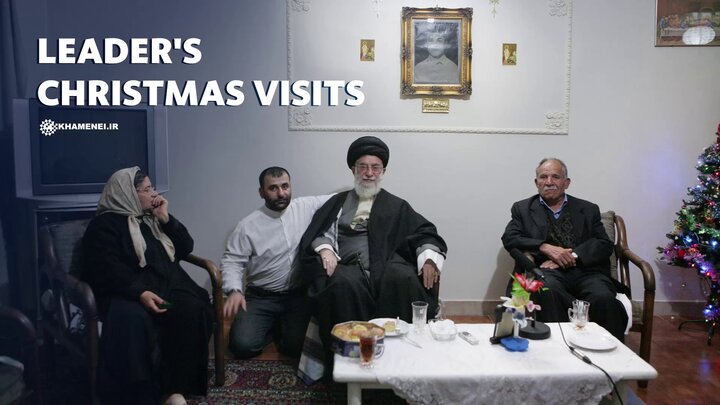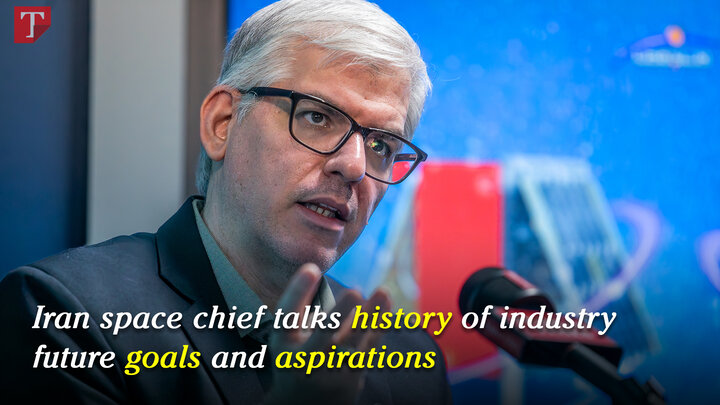-
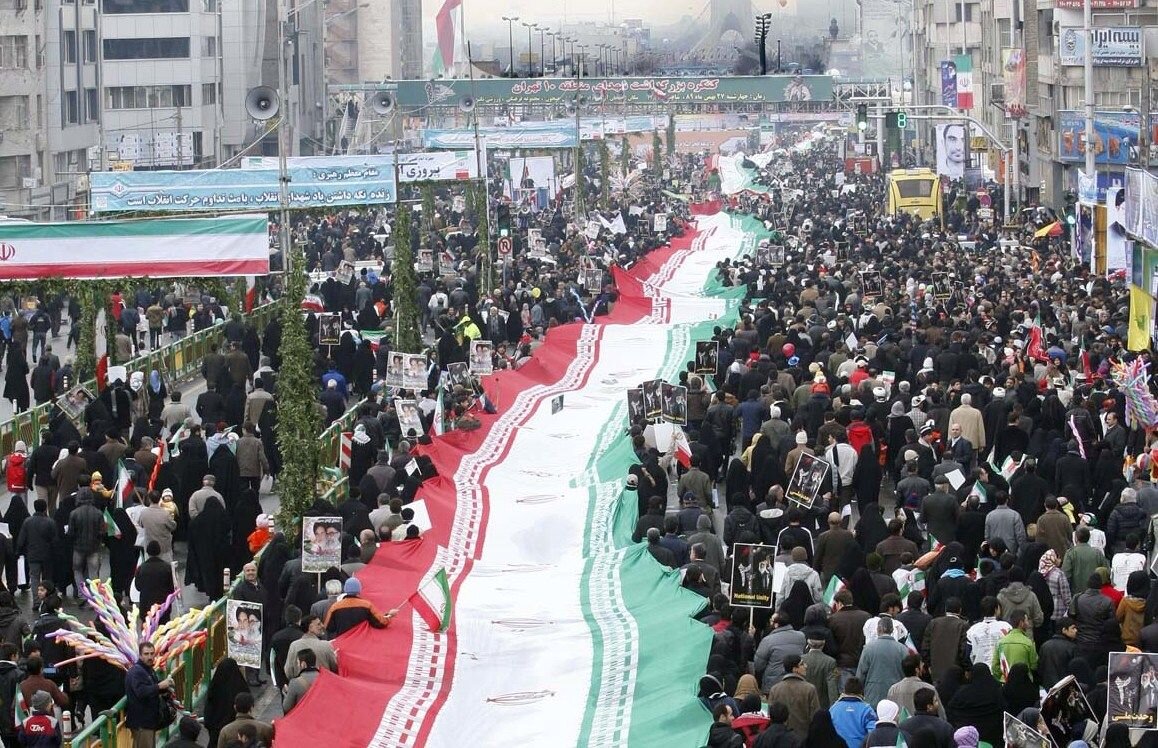 2026-01-02 18:23
2026-01-02 18:23
Trump’s ‘rescue’ threat and Iran’s unified rebuttal: From official condemnation to public ridicule
TEHRAN- A provocative social media post by U.S. president Donald Trump has triggered a wave of sharp reactions across Iran’s political establishment and social media landscape, reviving long-standing memories of U.S. interventionism and exposing what Iranian officials describe as the deep hypocrisy embedded in Washington’s rhetoric on human rights.
-
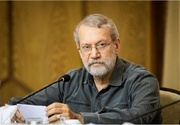
Americans be mindful of their soldiers’ safety, Iran says in response to Trump’s military threat
TEHRAN - Iran’s national security chief on Friday warned President Donald Trump that any U.S. interference in Iran’s internal affairs would put the lives of American soldiers in the region in jeopardy, saying Trump should understand the consequences of any military intervention.
-
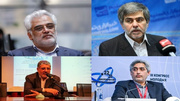
By Sahar Dadjoo
Targeted killing of scientists is a criminal act, says Indian analyst
Vineet Tiwari says the assassinations linked to “Operation Narnia” violate sovereignty, international norms, and basic human ethics
TEHRAN – In an exclusive interview with Tehran Times, Vineet Tiwari, an Indian writer and civil society activist, offers a critical assessment of revelations contained in a recent Washington Post’s investigation produced in partnership with PBS Frontline, which details Israel’s covert campaign, known as “Operation Narnia,” targeting Iran’s nuclear scientists.
-

UN Security Council paralyzed in face of US-Israel threats
Iran says will resolutely defend its territorial integrity, people and national interests
TEHRAN - Iranian Foreign Minister Abbas Araghchi has warned that the United States would bear full responsibility for the consequences of any aggression against Iran, saying the Islamic Republic would respond firmly to any hostile action.
-
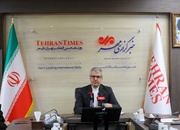
Iran’s new ambassador to Lebanon will soon start his mission: Foreign Ministry
TEHRAN – In a visit to the office of the Mehr Media Group, that includes the Tehran Times and Mehr news agency, Foreign Ministry spokesman Esmaeil Baghaei said Iran’s new ambassador to Lebanon will soon start his diplomatic mission.
-

By Shahrokh Saei
Peace on paper, fire on the ground: Trump’s seven-nation strikes in 2025
TEHRAN – Since returning to the White House in January 2025, Donald Trump has tried to cast himself as a peacemaker, insisting that his second term has brought an end to conflicts that long tied down the United States abroad. He has spoken of breaking with what he calls America’s era of “endless wars,” presenting his foreign policy as restraint, not intervention.
Politics
-
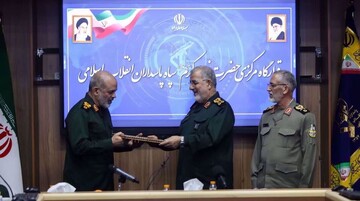
Brigadier General Ahmad Vahidi appointed IRGC deputy chief
TEHRAN – Leader of the Islamic Revolution Ayatollah Seyyed Ali Khamenei has appointed Brigadier General Ahmad Vahidi as the new deputy commander of the Islamic Revolution Guards Corps (IRGC), according to an official announcement.
-
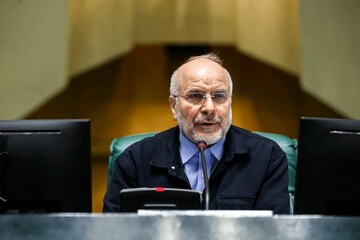
General Soleimani’s legacy remain alive and influential: parliament speaker
TEHRAN – Iran’s Parliament Speaker Mohammad Baqer Qalibaf said on Wednesday that the legacy and teachings of martyr Lieutenant General Qassem Soleimani remain alive and influential, describing them as a guiding model rooted in resistance, regional stability, and strategic foresight.
-
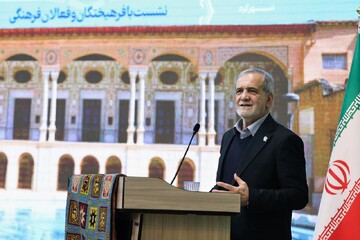
Pezeshkian says foes eying on economic pressure on Iran, not bombardment
TEHRAN – President Masoud Pezeshkian said on Wednesday that Iran’s adversaries are pinning their hopes on economic pressure rather than military force, stressing that no country can be defeated through bombardment alone.
Sports
-

Esteghlal earn late win over Sepahan: 2025/26 PGPL
TEHRAN - Esteghlal football team defeated Sepahan 2-1 in Matchweek 15 of the 2025/26 Iran’s Persian Gulf Professional League (PGPL) on Thursday.
-

Iran to play Spain in Madrid on June 2
TEHRAN - The Iran Football Federation's spokesman, Amirmehdi Alavi, recently confirmed a friendly match between Iran and Spain on June 2 at the Metropolitano Stadium in Madrid.
Culture
-
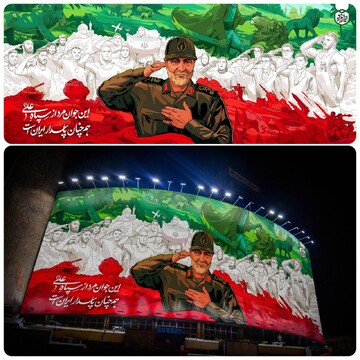
New mural at Valiasr Square depicts martyr general Haj Qassem Soleimani
TEHRAN –On the anniversary of the martyrdom of national hero Haj Qassem Soleimani, a new large-scale mural titled “Iran-Mard” (literally meaning Man of Iran) was unveiled at Tehran’s Valiasr Square.
-

Iranian Artists Forum screens “National Theater Live: Julius Caesar”
TEHRAN – The 53rd program in the series of screening of prominent filmed theaters, at the Iranian Artists Forum (IAF) in Tehran, was dedicated to “National Theater Live: Julius Caesar” (2018) directed by Tony Grech-Smith.
-
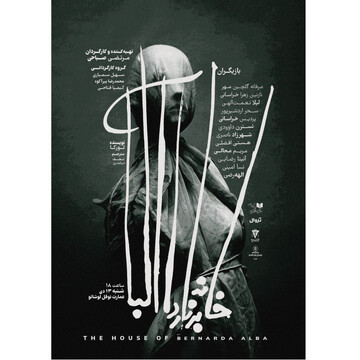
Nofel Loshato Theater to host stage reading of García Lorca’s “The House of Bernarda Alba”
TEHRAN – Nofel Loshato Theater in Tehran will host the stage reading of the 1936 play “The House of Bernarda Alba” written by the Spanish dramatist Federico García Lorca on January 3, 2026.
Economy
-
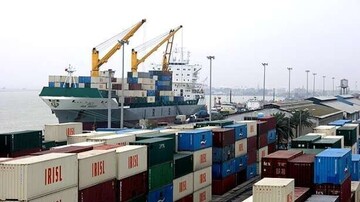
Iran’s non-oil exports reach $41.2b in 9 months
TEHRAN – Iran exported non-oil goods worth $41.243 billion in the first nine months of the current Iranian calendar year (March 21-December 21, 2025), customs data showed, as shipment volumes rose slightly despite a decline in export value.
-
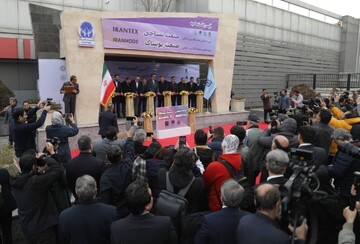
230 domestic, foreign firms take part in Iran textile, apparel exhibitions
TEHRAN – Iran on Friday opened its 31st International Textile Industry Exhibition and the 13th Iran Apparel Exhibition, with the participation of more than 230 domestic and foreign companies, organizers said.
-
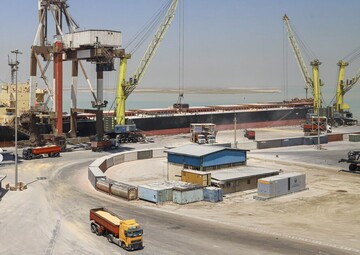
Three ports to be upgraded to 3rd-generation hubs under 7th development plan
TEHRAN – Three major ports are set to be upgraded to third-generation ports by the end of the country’s Seventh National Development Plan, the head of the Ports and Maritime Organization (PMO) said.
Society
-
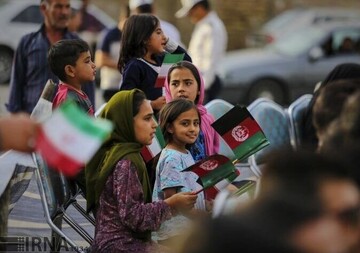
Afghans coming from Iran have ‘better education, food security’ than those returning from Pakistan
TEHRAN - The Office of the United Nations High Commissioner for Refugees has said those Afghan refugees returning from Iran often have more education, better food security, and housing than those returning from Pakistan.
-

Health ministry observes national social work day
TEHRAN – The ministry of health commemorated the 40th national social work day on Wednesday, highlighting intersectoral collaboration to support children within the health system.
-
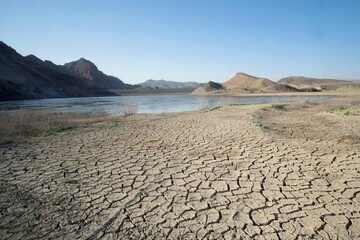
Drought persists despite intensified precipitation
TEHRAN – Despite recent heavy rainfalls, water resources in the country are still under pressure, with a large part of the country grappling with drought.
Tourism
-
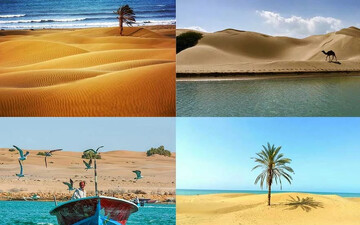
Iran, a paradise for nature lovers
TEHRAN - A land of remarkable natural diversity, Iran boasts a great range of natural diversity. From high mountain peaks and peaceful forests to golden deserts and vibrant wetlands, the country has something unique to offer every nature lover.
-
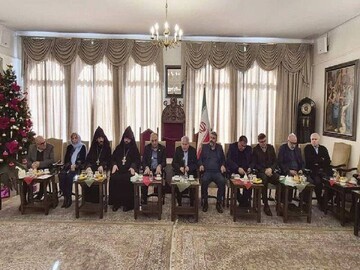
Armenian community, genuine part of Iranian nation
TEHRAN--The Armenian community of Iran is not a minority, but a genuine and deep-rooted part of the Iranian nation, Minister of Cultural Heritage, Tourism and Handicrafts Reza Salehi-Amiri said during his visit to the Saint Sarkis Cathedral in Tehran on Tuesday,
-
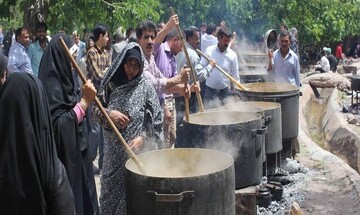
Bulgur-Pazan ritual, still alive in memory of southern Khorasan people
TEHRAN--In the heart of the southern Khorasan desert, a centuries-old ritual continues to thrive in the collective memory of local communities.
International
-
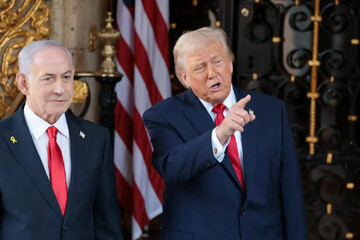
Peace on paper, fire on the ground: Trump’s seven-nation strikes in 2025
TEHRAN – Since returning to the White House in January 2025, Donald Trump has tried to cast himself as a peacemaker, insisting that his second term has brought an end to conflicts that long tied down the United States abroad. He has spoken of breaking with what he calls America’s era of “endless wars,” presenting his foreign policy as restraint, not intervention.
-

The anatomy of a broken Syria and the mirage of sovereignty
TEHRAN – More than a year after the collapse of the al-Assad government in December 2024, the “New Syria” has proved to be a cruel mirage.
-

Lebanon in 2025: A nation adrift in chaos and defiance
BEIRUT —2025 offered no respite for Lebanon. Fleeting moments of calm only exposed deeper rot gnawing at the state’s foundations. Institutions crumble under chronic mismanagement, while political forces wallow in disarray.
Most Viewed
-
Trump’s ‘rescue’ threat and Iran’s unified rebuttal: From official condemnation to public ridicule
-
Americans be mindful of their soldiers’ safety, Iran says in response to Trump’s military threat
-
Iran to play Spain in Madrid on June 2
-
Esteghlal earn late win over Sepahan: 2025/26 PGPL
-
Iran’s non-oil exports reach $41.2b in 9 months
-
Iran showcases glass industry self-sufficiency at Tehran exhibition
-
Iran’s 4th Eurasia Expo to provide suitable opportunity for traders, producers
-
230 domestic, foreign firms take part in Iran textile, apparel exhibitions
-
Three ports to be upgraded to 3rd-generation hubs under 7th development plan











